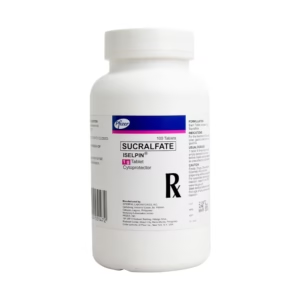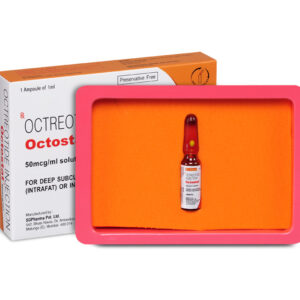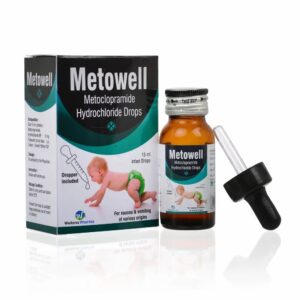-
Sucralfate
Sure! Here’s a similar overview for sucralfate:
Applications:
- Used primarily to treat and prevent peptic ulcers by forming a protective barrier over ulcer sites in the stomach and intestines.
- Often prescribed for gastroesophageal reflux disease (GERD) and to manage conditions involving damage to the stomach lining, like gastritis.
- Can help in the healing of esophageal ulcers, as well as ulcers caused by nonsteroidal anti-inflammatory drugs (NSAIDs).
Side Effects:
- Common side effects include constipation, dry mouth, and mild stomach discomfort.
- Rare but serious side effects can include allergic reactions, severe abdominal pain, or difficulty breathing.
- Prolonged use may lead to malabsorption of nutrients like phosphate, which can cause low phosphate levels.
- In some cases, patients may experience dizziness or headache.
Sucralfate is typically considered a safe treatment, but like with any medication, it’s important to monitor for any adverse effects, particularly with long-term use.
Br120.00
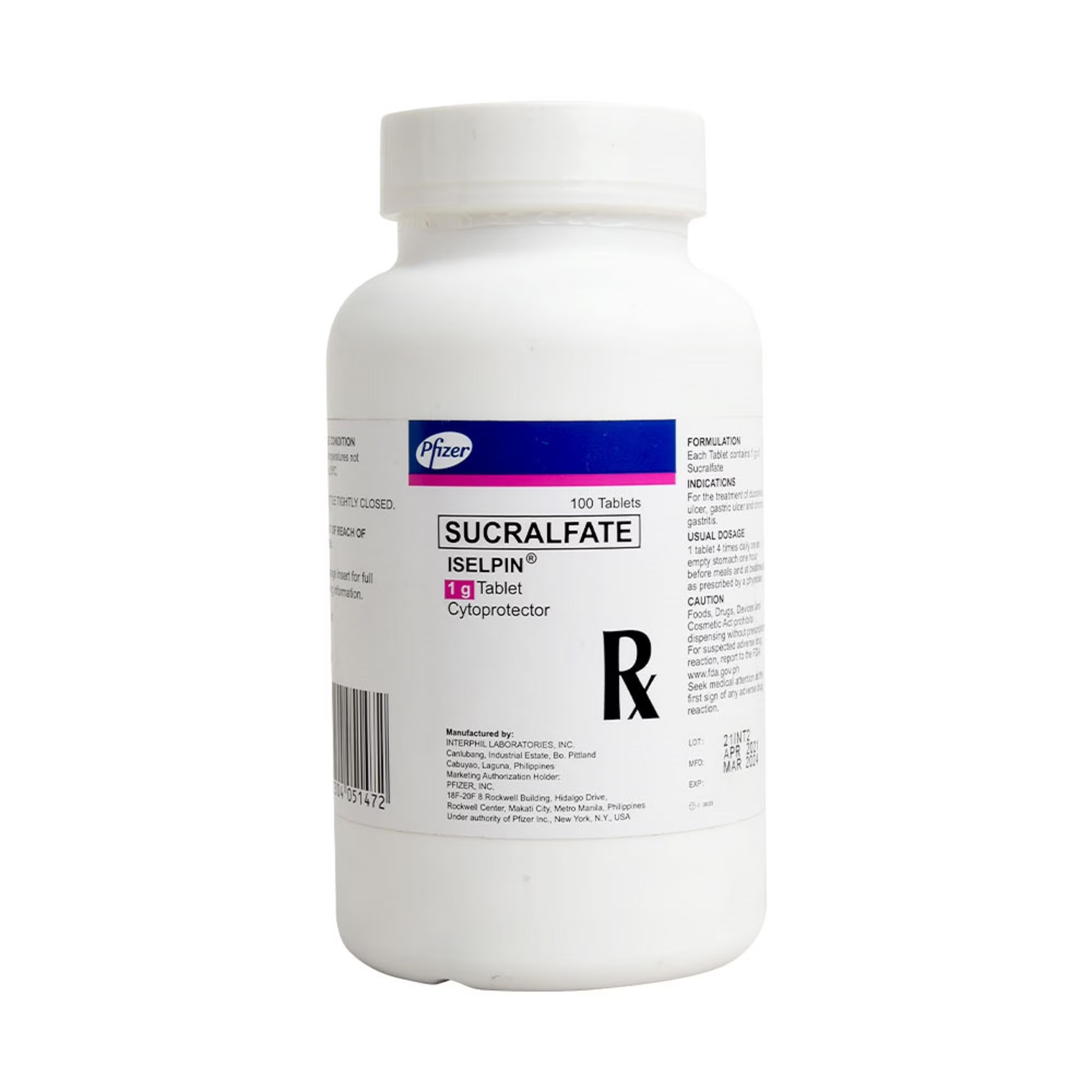
Sucralfate
Br120.00 Select options This product has multiple variants. The options may be chosen on the product page -
Octreotide
Applications:
-
Treats acromegaly (reduces growth hormone)
-
Manages neuroendocrine tumors (controls carcinoid/VIPoma symptoms)
-
Stops severe GI bleeding (esophageal varices, ulcers)
-
Closes pancreatic/intestinal fistulas
Side Effects:
-
Common: Nausea, diarrhea, gallstones, blood sugar changes
-
Serious (rare): Heart rhythm issues, thyroid dysfunction
Note: Requires monitoring for gallbladder and metabolic effects. Available in short-acting (daily) and long-acting (monthly) forms.
Br120.00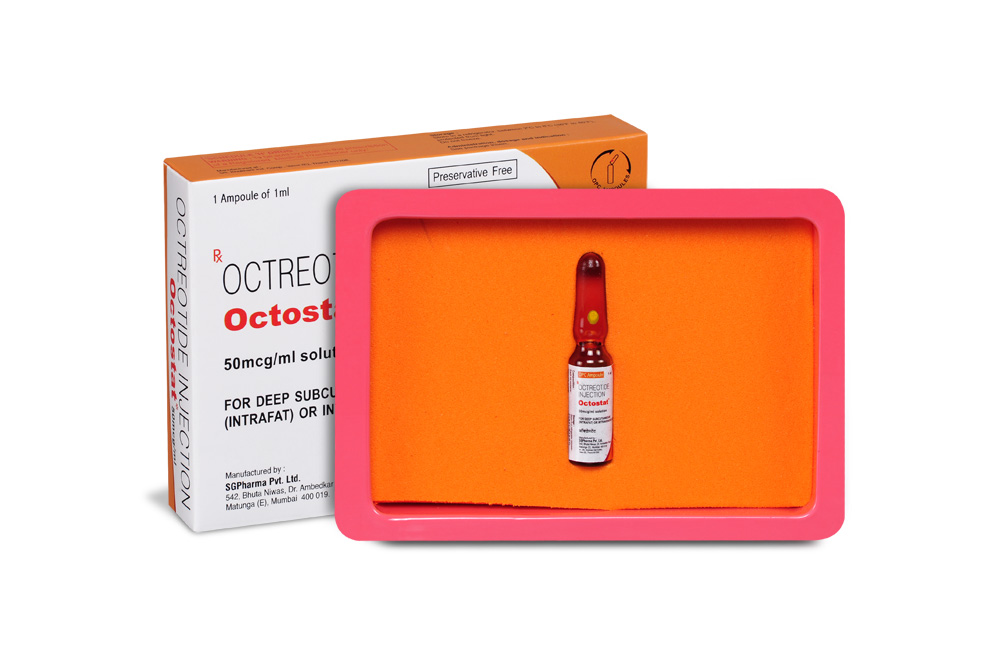
Octreotide
Br120.00 Select options This product has multiple variants. The options may be chosen on the product page -
-
Omeprazole
Applications:
-
Treats severe GERD/ulcers (when oral therapy fails)
-
Manages Zollinger-Ellison syndrome (acid hypersecretion)
-
Prevents acid aspiration during surgery
-
Reduces rebleeding risk after endoscopic treatment
Side Effects:
-
Common: Headache, nausea, injection-site pain
-
Serious (rare): Kidney injury, low magnesium, bone fractures (long-term use)
Note: Requires kidney/magnesium monitoring with prolonged IV use. Administered once daily (40mg). Brands include Losec® IV and generics.
Br120.00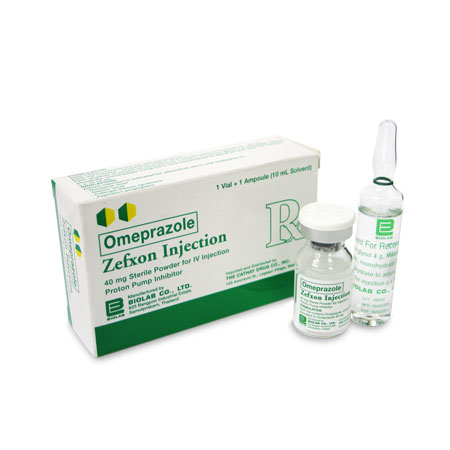
Omeprazole
Br120.00 Select options This product has multiple variants. The options may be chosen on the product page -
-
Meclizine Hydrochloride
Meclizine Hydrochloride is an antihistamine used to treat motion sickness and vertigo.
Applications:
-
Prevents and treats nausea, vomiting, and dizziness from motion sickness.
-
Manages vertigo from inner ear disorders like Ménière’s disease.
Side Effects:
-
Common: drowsiness, dry mouth, and blurred vision.
-
Serious (rare): confusion, especially in older adults.
Br120.00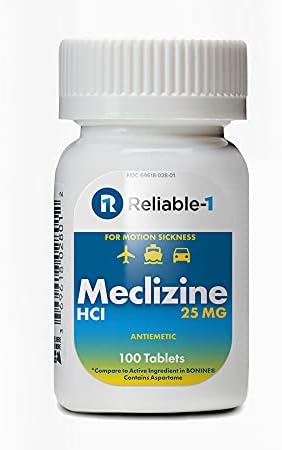
Meclizine Hydrochloride
Br120.00 Select options This product has multiple variants. The options may be chosen on the product page -
-
Metoclopramide Hydrochloride
Metoclopramide Hydrochloride is a dopamine antagonist used to treat nausea, vomiting, and delayed gastric emptying.
Applications:
-
Treats nausea and vomiting from various causes, including chemotherapy and migraines.
-
Manages gastroparesis by enhancing stomach motility.
-
Used for GERD when other treatments fail.
Side Effects:
-
Common: drowsiness, fatigue, restlessness.
-
Serious (rare): tardive dyskinesia (involuntary movements), Parkinson-like symptoms, depression.
Br120.00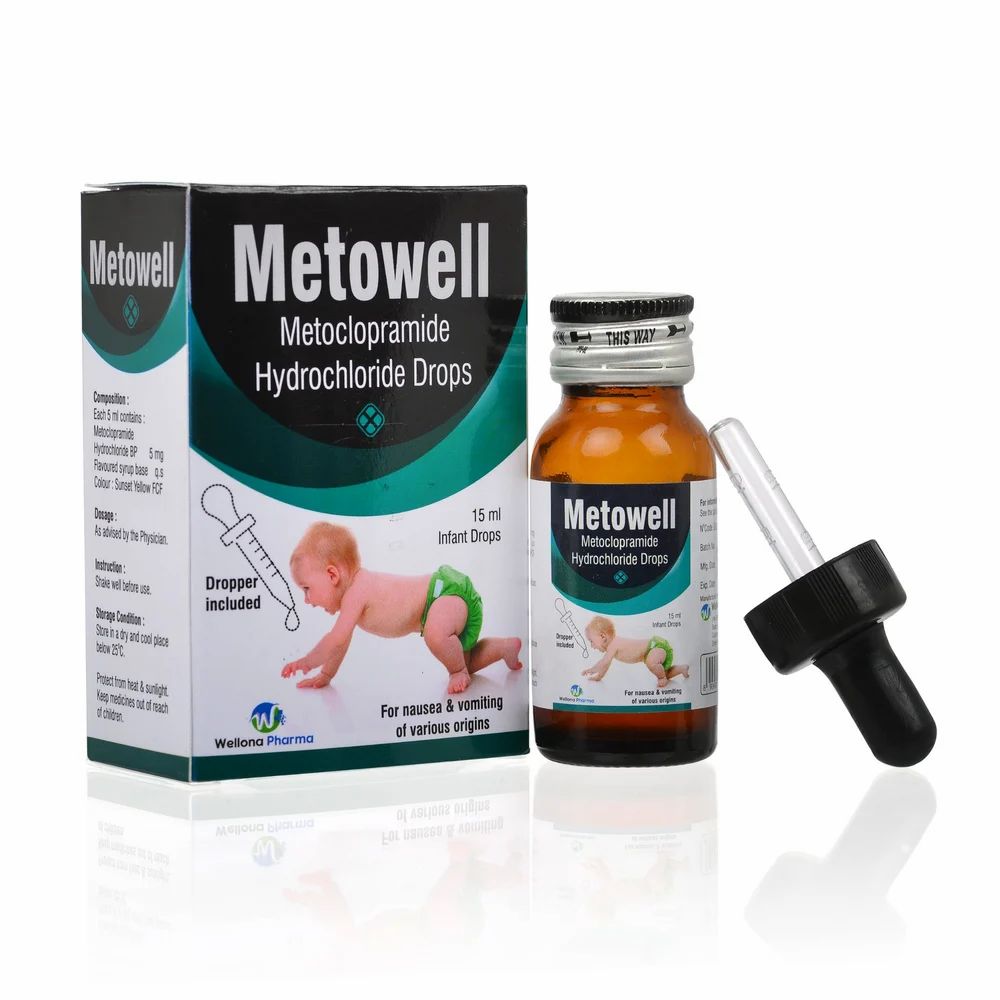
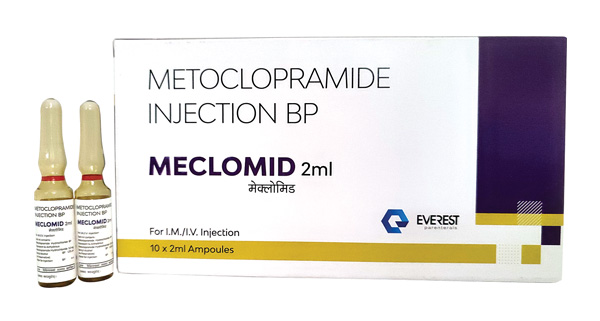
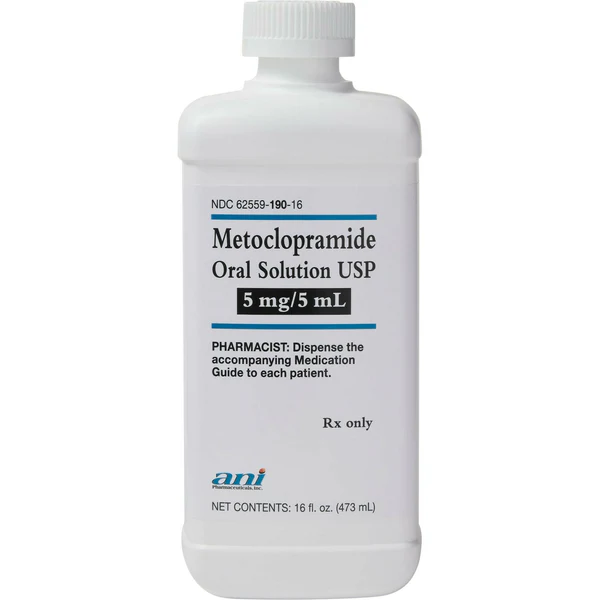

Metoclopramide Hydrochloride
Br120.00 Select options This product has multiple variants. The options may be chosen on the product page -

